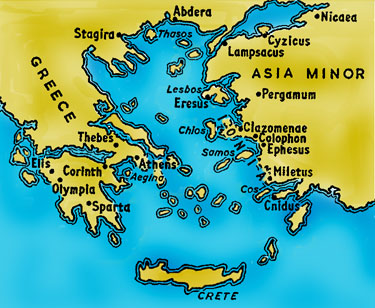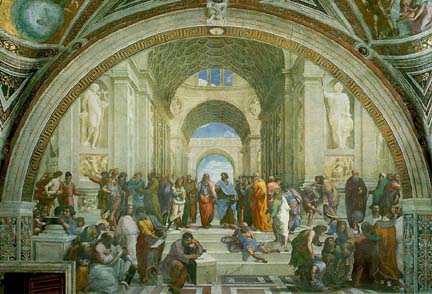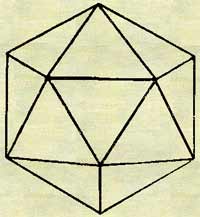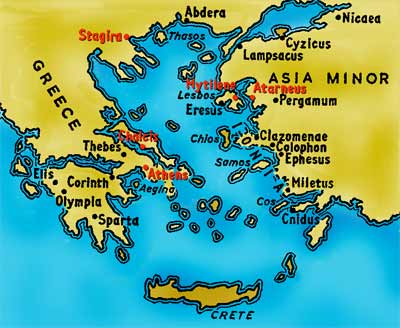

SPRING QUARTER, 2006
Department of History
University of California, Irvine
Instructor: Dr. Barbara J. Becker
|
Lecture 1. The Greeks
|

![]()
How can the structure and function of the natural world be explained without recourse to supernatural causes?
What constitutes an objective and unbiased method of interrogating all natural phenomena?
![]()
Begin by identifying nature's First Principles:
| To account for... | which the Greeks called... |
|
| stability in the world... | find what is fundamental, constant and unchanging... |
|
| diversity in the world... | find what is different, what changes, and how it changes; this will reveal the rules or agencies that control the change process... |
|
| pattern in the world... | use these rules to organize the fundamentals into a "neat array"... |
|
![]()
Ionian Philosophers
|
|
|
|
| Thales of Miletus | 640-546 BCE |
Water |
| Anaximander of Miletus | 611-547 |
The Boundless |
| Pythagoras of Samos | 580-500 |
Number |
| Anaximenes of Miletus | 556-480 |
Pneuma (breath; air; spirit) |
| Heraclitus of Ephesus | 510-475 |
Fire |
![]()
|
What is, IS -- and cannot NOT BE. Something that IS cannot become what it IS NOT. Conundrum: If there is only ONE first principle, how can we account for the diversity we observe in the world?
|
"...it is right that you should learn all things, both the persuasive,
unshaken heart of Objective Truth (The Way of Truth), and the subjective
beliefs of mortals (The Way of Seeming), in which there is no true
trust. But you shall learn these too: how, for the mortals
passing through them, the things-that-seem must 'really exist,' being,
for them, all there is."
--On Nature by Parmenides |
![]()
|
Anaxagoras (500-428 BCE) There are as many elements as there are things that exist. Empedocles (490-430 BCE) Agents of love and strife (attraction and repulsion) act on 4 elements (earth, air, fire, water) to produce diversity observed in the world. We can know about the world because we are made of these elements. Atomists (460-370 BCE) e.g. Leucippus, Democritus There is only one element--That Which Is (Atoms). But That Which Is Not is also real (the Void). Atoms and the Void interact (through random motion and collisions) thus producing all the diversity observed in the world. We can know about the world through our senses when atoms impinge on us. |
![]()
The Athenians |
 The School of Athens (1509-1511), by Raphael [Raffaello Sanzio (1483-1520)] |
![]()
|
Socrates (470-399 BCE) Marked end of ancient thinking and beginning of progressive classical Greek thought. After Peloponnesian War (431-404 BCE), Athenians faced political crisis: How is the state to be governed?
Cosmos and Polis are related: use methods for obtaining knowledge of the natural world to gain better understanding of and mastery over human affairs. |
![]()
Two worlds:
Mathematics (geometry) bridges these two worlds and makes the Ideal world accessible to human understanding through reason.
Quadrivium
 |
![]()

Events in the Life of Aristotle (384-322 BCE) |
|
| 384 BCE | born in Stagira |
| c. 366 | begins studies with Plato at the Academy in Athens |
| c. 347 | after Plato's death, joins his former student, Hermeias, in Atarneus where they form a group patterned after the Academy |
| c. 343 | moves to Mytilene on the island of Lesbos |
| c. 342 | invited back to Stagira to serve as tutor to Alexander, the 13-year-old son of Philip of Macedon |
| c. 334 | returns to Athens, where he establishes the Lyceum, his own philosophic circle |
| c. 323 | after Alexander's death, flees Athens and settles in Chalcis on the island of Euboea |
| 322 BCE | dies after a brief illness |

|